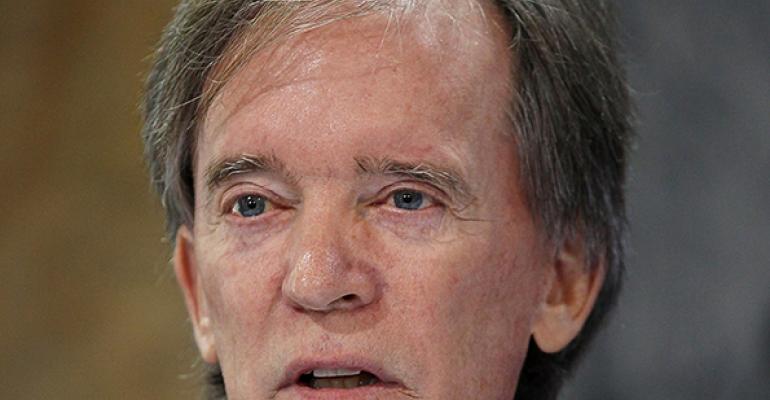(Reuters) - U.S. regulator the Securities and Exchange Commission is investigating whether bond fund manager Pimco inflated the returns of its Total Return Exchange-Traded Fund (BOND.P) run by founder Bill Gross, who has come under renewed fire from investors this year over the poor performance of his main fund.
Pimco and its owner, Allianz (ALVG.DE), Europe's biggest insurer, confirmed the probe after a report in the Wall Street Journal said the SEC investigation into the $3.6 billion exchange-traded fund has been going on for at least a year but has picked up pace in recent weeks.
The SEC's probe is looking into how the ETF bought and then valued its investments in bonds and whether that led to inaccurate information about the fund's actual performance being given to investors, the Journal said.
Gross, the chief investment officer of Pimco, and other executives have been interviewed by the SEC as part of the probe, the report said.
"Pimco has been cooperating with the SEC in this non-public matter and we take our regulatory obligations and responsibilities to our clients very seriously," a spokesman for Pimco told Reuters.
"We believe our pricing procedures are entirely appropriate and in keeping with industry best-practices."
An Allianz spokeswoman said the insurer was aware of the probe but declined to say when it started or give any details.
"Allianz has been kept regularly informed by Pimco about the SEC investigation," she said.
The SEC could not be reached for comment outside regular U.S. business hours.
Allianz's shares were down 0.5 percent by 0955 GMT (5.55 a.m. EDT) on Wednesday, when the STOXX Europe 600 insurance sector index .SXIP was down 0.2 percent.
BAD MEMORIES
The news of the probe exacerbates what has already been a rough year for Gross and Pimco. Pimco, which is based in Newport Beach, California, had $1.97 trillion in assets as of June 30.
Pimco's flagship Total Return Fund (PTTRX.O), the world's largest bond fund, has seen outflows for 16 straight months through August. Analysts have said cash outflows began last year due to weak returns and the fund declined 1.9 percent in 2013, its worst performance in nearly two decades.
A public falling out earlier this year between Gross and his one-time heir-apparent Mohamed El-Erian, who was co-chief investment officer, has only added to investors' unease.
Investors have pulled almost $70 billion from the fund since May 2013, Morningstar data shows, with net outflows in August alone of $3.9 billion despite some improvement in performance.
The Total Return Fund had $221.6 billion in assets at the end of August, down from a peak of $292.9 billion in April 2013.
The Pimco Total Return Exchange-Traded Fund, an actively managed ETF designed to mimic the strategy of the flagship mutual fund, however, has been doing better. The fund had net inflows of $87 million in August, its third month of inflows, according to Morningstar.
Although total assets in the fund at the end of August were $3.6 billion, a fraction of the assets in the mutual fund, the ETF ranks at the top of its category.
Allianz Chief Financial Officer Dieter Wemmer told Reuters TV in an interview in May that Pimco had autonomy on investment decisions and practices but that Allianz's controls were strict.
"When it comes to legal, compliance, risk, finance, internal audit, they are part of the group-wide governance system and that is the way it should be,” Wemmer said.
(Reporting by Ankush Sharma in Bangalore and Jonathan Gould in Frankfurt; Editing by Gopakumar Warrier and Greg Mahlich)






